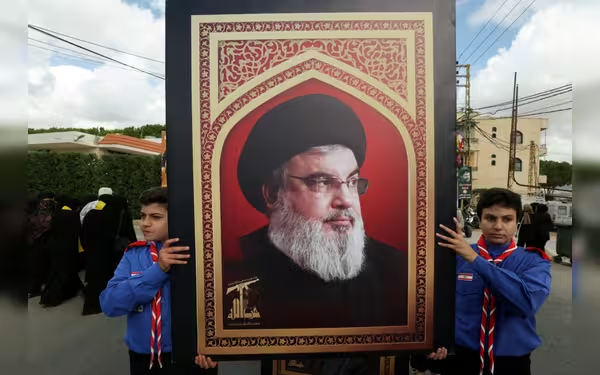Saturday, November 16, 2024 06:28 PM
Tunisia's Foreign Minister Criticizes Global Silence on Palestinian Rights
- Tunisia condemns international silence on Palestinian human rights.
- Support for Palestinian self-determination emphasized at UN.
- Call for UN reform to address global crises.
 Image Credits: arabnewspk
Image Credits: arabnewspkTunisia's foreign minister criticizes global inaction on Palestinian rights at the UN, calling for reform and support for self-determination.
In recent developments, Tunisia's foreign minister, Mohamed Ali Nafti, has voiced serious concerns regarding the ongoing situation in Palestine. Speaking at the United Nations General Assembly, he highlighted the severe human rights violations and war crimes that Palestinians have been enduring at the hands of Israel. This statement comes at a time when the international community is under scrutiny for its perceived inaction and silence on these pressing humanitarian issues.
Nafti's remarks were pointed and clear. He stated, "The international community remains unjustifiably and immorally silent," emphasizing that calls for human rights often fade when it comes to the plight of the Palestinian people. His comments reflect a growing frustration among many nations regarding the lack of effective action to uphold international humanitarian law.
During his address, Nafti reiterated Tunisia's unwavering support for the rights of the Palestinian people, particularly their right to self-determination and the establishment of an independent state with East Jerusalem as its capital. He also expressed Tunisia's backing for Palestine's bid to become a full member of the United Nations, underscoring the need for equal treatment of all nations without discrimination.
Furthermore, Nafti did not shy away from addressing broader global issues. He pointed out the increasing crises around the world, including conflicts, terrorism, and poverty. He remarked on the widening gap between the Global North and South, stressing that the current international system is failing to meet the development needs of many countries. His call for reform within the UN, particularly the Security Council, aims to enhance its credibility and effectiveness in addressing these global challenges.
Nafti's speech also touched on the pressing need for stability in regions like Libya and Sudan. He urged for an end to foreign interventions and called for dialogue among conflicting parties to alleviate the suffering caused by war and displacement. His emphasis on "African solutions for African problems" highlights the importance of local approaches to resolving issues that affect the continent.
The statements made by Tunisia's foreign minister resonate with a growing sentiment among many nations that the international community must take a more active role in addressing human rights violations and conflicts around the world. As the situation in Palestine continues to unfold, it is crucial for global leaders to prioritize humanitarian concerns and work towards a more equitable and just international system. The call for reform and action is not just a plea for Palestine but a demand for a better future for all humanity.













